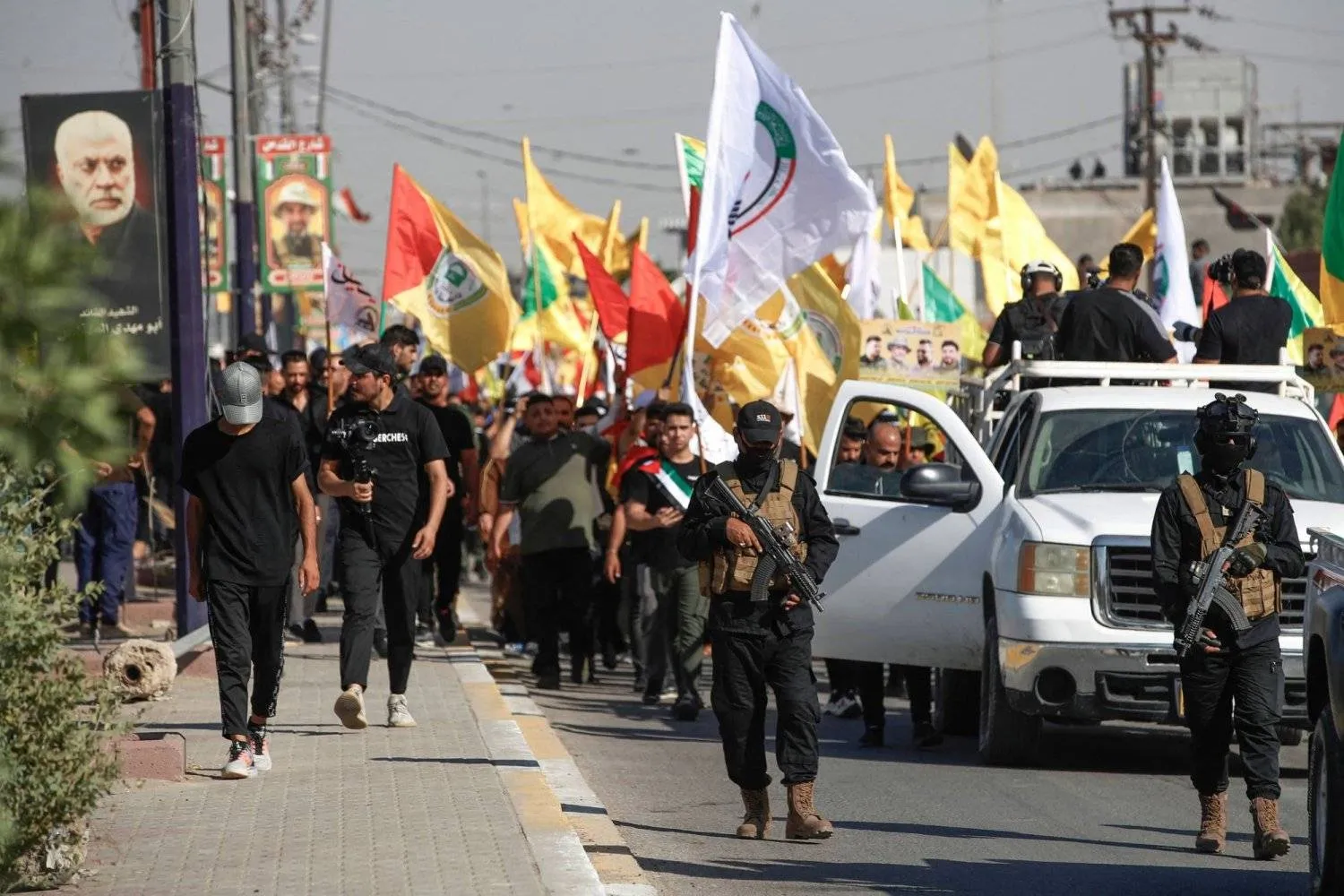The pro-Iran Kataib Hezbollah faction in Iraq vowed on Friday to send 100,000 fighters to Lebanon to support Hezbollah in its fight against Israel.
In a letter to Hezbollah Secretary-General Hassan Nasrallah, Kataib Hezbollah Secretary Abu Alaa al-Walai said his faction was ready to send fighters to the Lebanese group, which is also backed by Iran.
“Nasrallah once told me that Iraq was the greatest reservoir of power and a vital artery of resistance,” he added.
He said his fighters were “waiting for the signal” to act.
Once given, a “human deluge will flood Lebanon’s borders and trenches. If Hezbollah has lost a thousand martyrs, then we will assist it with 100,000 heroes,” he declared.
Tensions have heightened in the region following a wave of apparently remotely detonated explosions in Lebanon targeting pagers and walkie talkies belonging to Hezbollah. The attacks, widely blamed on Israel, which has not commented on them, killed at least 37 people — including two children — and wounded about 3,000.
Armed Iraqi factions have reviewed the security of their communications network in wake of the attack.
Sources said the factions have carried out the necessary contacts to assess the situation after the “shocking blow dealt to Hezbollah in Lebanon.”
A leading member of the ruling pro-Iran Coordination Framework confirmed that security officials, especially members of the Popular Mobilization Forces, were quick to check the security of the communications network after this week’s attacks.
Meanwhile, a leader of the Kataib Hezbollah was killed in a strike in Syria on Friday, a war monitor and a militia official said.
In a statement, the faction said Abu Haidar al-Khafaji was killed “while performing his duties as a security advisor in Damascus.”
The United Kingdom-based Syrian Observatory for Human Rights had earlier reported that a leader in Kataib Hezbollah group was killed and another person injured in a drone strike on the car they were traveling in on the road to the Damascus airport.
An official with an Iraqi militia confirmed that a car carrying a group of militia members was struck in Damascus, killing one person and injuring three others. The official spoke on condition of anonymity because he was not authorized to speak to the media.
There was no comment from Israeli officials on the strike. Israel frequently strikes Iranian and Iran-linked groups in Syria but rarely acknowledges the strikes.









